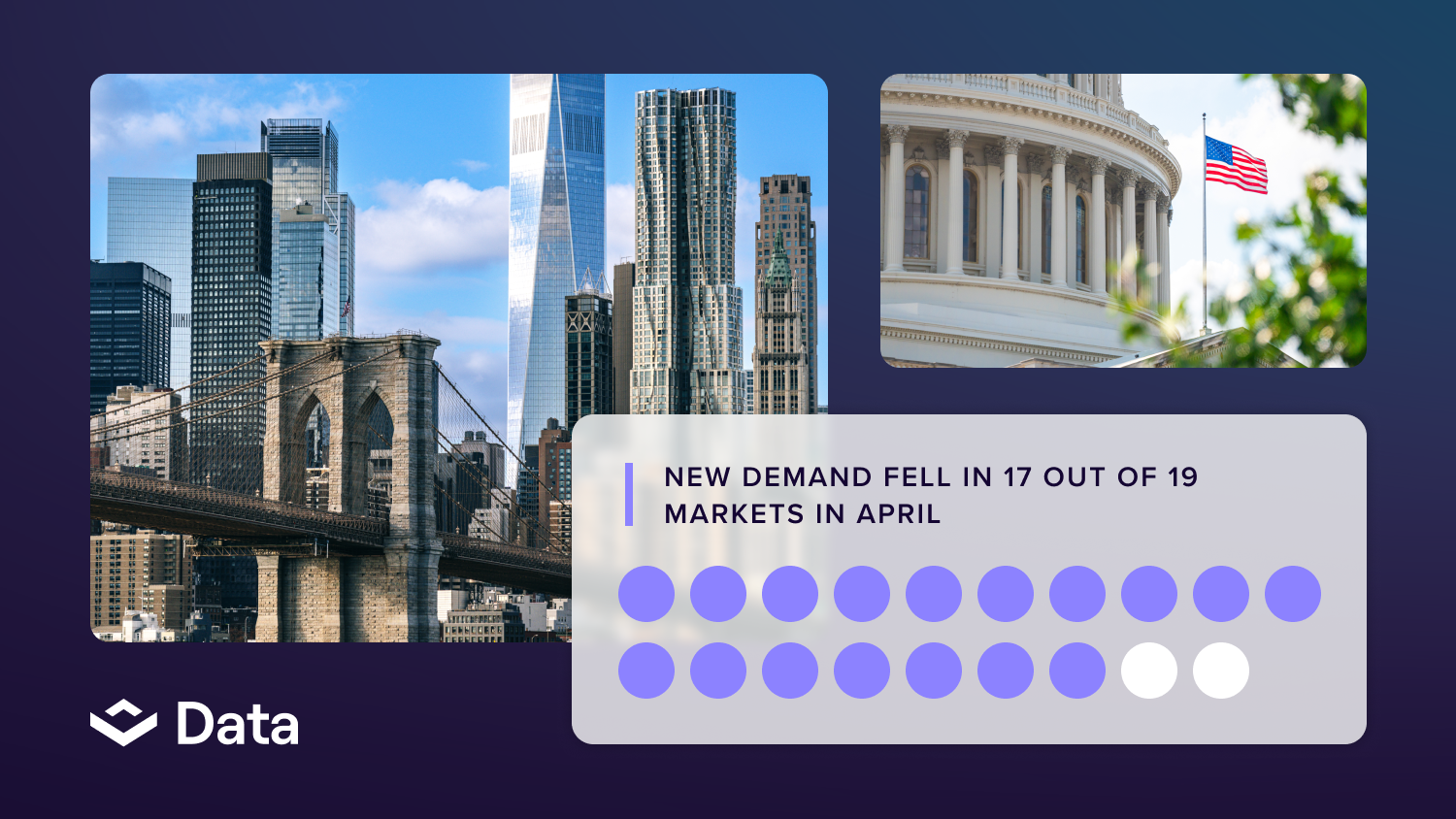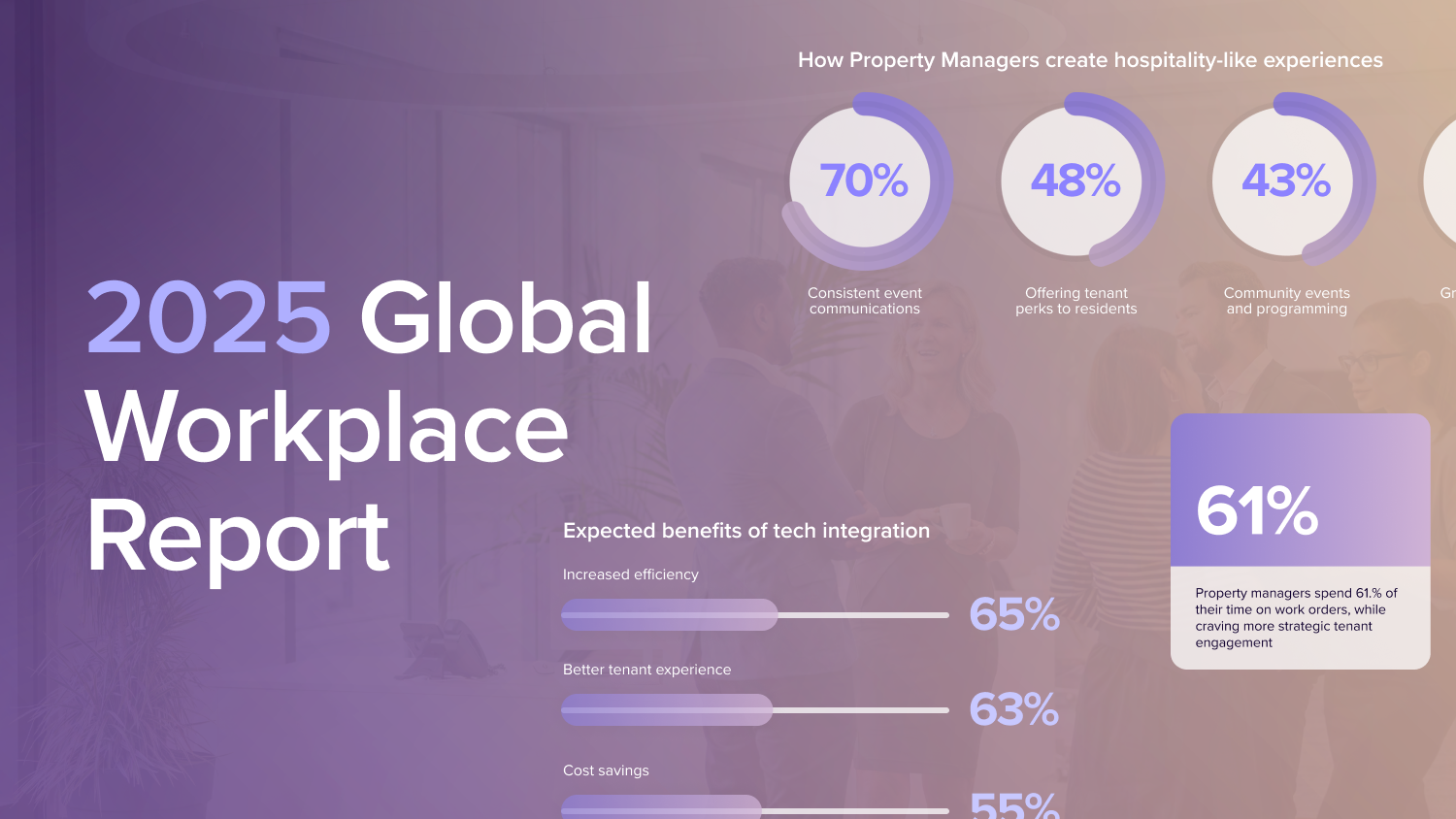In this edition of the VTS Innovators Spotlight, we sat down with the multi-hyphenate Susan Vickery — an early Rise Buildings (now VTS Activate for Multifamily) advisor, former Managing Director of Trammell Crow Residential, and now Principal at Caryatid Consulting — to talk about what truly creates value for multifamily residents, owners, and property managers.
Hi Sue! First of all, thanks so much for your time. You've been a trailblazer in resident experience within the multifamily sector for multiple decades now, including your time leading the charge at Trammell Crow. Tell us — what makes a great resident experience that is timeless, and what are the new opportunities that can elevate a resident's experience in their building?
With regards to a timeless resident experience, I would say two things — and they're going to sound kind of boring because what makes projects successful has been the same since I started in the business over 30 years ago. One is Management 101: clean the corridors, do timely service requests, keep the amenities maintained, and have transparent and proactive communication with the resident as much as possible. A lot of retention issues are because management is afraid to talk to residents. Screening bulletin boards or Facebook accounts to take out all the negative comments — that happens way too much. But having an open conversation with a spirit of connectivity is key.
The other is balancing focus between new leases and retention. It sounds like a cliché, but retention is going to be super important going forward because sales and new starts have drastically slowed.
As far as new opportunities go — one thing that's become more prevalent, especially after COVID, is that our customers want a sense of community where they live. People not only want management-sponsored events, but they want to be able to talk to each other. Resident apps that enable this are something I really like. They're no longer only for maintenance and access, but also for resident engagement. Residents being able to talk to each other, to sell an item, to invite people for pizza — any way to build community is absolutely key to decreasing turnover and growing the rent roll.
Following up on your point about the basics being crucial (such as cleaning the corridors and creating a sense of community), I'm curious — is there a distinction in how important and effective those things are for luxury assets vs. more affordable buildings?
No, but there is a misperception that there is a difference. And the reason there is no difference is because people rent an apartment based on location and price, and that's it. Once those two value propositions are met, all you have left is how they feel when they're living there and what they do when they're living there. Across the product types, those two things are still important. They may look a little different from the product standpoint because people are paying more money for a fancier place to live, but they're not paying more money for the same basic management philosophy and resident retention programs.
While we're on the topic of misconceptions — the other misconception out there is that Gen Z doesn't care about being with other people because they're solitary, more comfortable with social media, and more on their phones. But the data shows they want to be with other people and, more than ever, they want to not feel isolated. Incorporating that knowledge into building operations is going to make a difference no matter the product.
Great answer! Not unexpected, but nonetheless great. In your current role as Principal of Caryatid Consulting, your services are offered across the entire asset lifecycle. The common outcome of those services appears to be asset value maximization. With the multifamily industry currently in a strange macro situation (high demand/low supply, but high cost of capital for lending, resources, and construction), what value-building activities are you most focused on with customers?
Another twofold answer. One — on the development side, there's a focus on creating amenities that residents use. Right now we're experiencing a developer-driven building model that is based on it looking fancier than a rival building. But if you look at how residents spend their time in amenities, it's a matter of whether they can do the activity in their apartment. If the answer is yes, they're not going to use it as an amenity.
So as a result — basic example: no TV-watching central amenities anymore unless it's a theater that has a multipurpose or rentable aspect to it. The amenities I'm recommending are about socializing — think gaming, something near a pool — and work under the assumption that when you're in those amenities, you're with your friends or relatives or entertaining guests. Ultimately, it's about not making duplicate amenities.
Then on the retention and operations side, it's expense management. I look at every assumption in a budget that I review. A lot of times when you get a budget from property management, they have line items in their standard budget like admin or property staff training fees. Well, what are those admin fees? What is the staff training plan, and is the level of training driving a better standard of service? If the answer isn't clear, these are the hidden costs and allocations that can be trimmed.
Digging more into the expense management topic — with multifamily rent growth slowing for the first time in many years, that part of the NOI equation is being compressed. We've been hearing that owners are looking to centralization as an answer to OPEX challenges. What role do you think technology plays in enabling the centralization of resources?
I have been seeing centralized management play out, and it's a model that works for individual owners with multiple assets in one place. It also works great for owners of small buildings that have limited onsite staff and allow for self-guided resident tours. Theoretically, it's all a huge cost savings. The reality is it's not sustainable outside of those parameters. You can't stretch staff too thin across properties for long — and for what it is worth, residents hate self-guided tours. What you gain in cost savings, I think you lose out on new leases.
That said - I'm super passionate about recent developments in technology that allow remote monitoring and management of things like leak detectors, locks, smart thermostats, EV charging stations — even smart lighting. In many cases the cost of installing these tools is covered within just a couple years of install. Not only do you save time by providing dashboard-style monitoring over physical inspections, but they can greatly reduce operating costs while future-proofing the asset. For example — one bad leak gone undetected can cause tens of thousands of dollars in damage, versus a leak detector catching it in its earliest stages.
Not to plug Rise (now VTS Activate for Multifamily), but apps like it that give residents building/suite access and enable open, transparent communication with property management through their phones are also a big opportunity. Remote lock opening via a resident's phone can mean less overtime for maintenance staff responding to lockouts, but the bigger picture opportunity is revenue. Property managers can be hesitant to allow residents to have their concerns addressed in an open forum, but it builds trust and loyalty. That's what's going to keep residents renewing their leases, especially Gen Z residents, who will be the most important customers over the next 10 years (as older generations move out).
Final question - please fill in the blank: ___ is what will separate the winners and losers in multifamily leasing over the next five years.
Data and analytics. So much of what we do in resident experience is based on anecdotal evidence, such as looking at what competitors do to be successful and asking management what residents like. That's not a reliable source of information.
I'll give an example as to why. I once went to a focus group during my time at TCR (Trammel Crow Residential) where residents were complaining that the rooftop lounge closed at 7pm, even though TCR's policy is that all amenities are open 24/7. So I said, well, who did that? Why are we closed at 7pm? Turns out a particular resident and their friends kept going up to the rooftop and making a lot of noise, and there were complaints. Management then shut it down for the other 350 units that weren't making noise, instead of managing the bad seed.
It's easier to make sweeping decisions based on a squeaky wheel, even when there's no quantitative evidence that it's good for the entire community. Just as often you'll hear things like "nobody ever uses the clubhouse." Well, when are you looking? During the day when everybody's at work? Are you looking at it on Friday night or Saturday night, or maybe Thursday Night Football? Hard to know when the office closes at 6pm.
I am a huge proponent of surveying residents and utilizing your lock data. If you set up your property correctly, your access system will tell you who's going in each room and amenity, if it's a unique visitor, and what time of day it is. Utilizing that and asking residents actionable questions through surveys — it will not only help with understanding what's truly working and not working with residents, but it will also help with making data-driven decisions on future projects.
All in all — focusing on data allows you to identify what residents value most, and therefore what they're willing to pay for. It streamlines investment dollars to be allocated toward things residents want, thereby ensuring greater ROI and less hit-or-miss capital projects.






